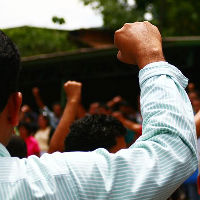Introduction
International support is capable of making the difference between the successful defense of democracy and its ignominious defeat. Indeed, the perceived probability of both support for democratically chosen leaders and opposition to their attackers can fundamentally shift the balance in the domestic struggle between them. Nevertheless, although changes to international law and international relations justify a greater international role in preventing and deterring coups and erosions, not all responsibility for protecting democracy should be assigned to the international community. Indeed, the first line of defense should be a democracy's own domestic initiatives, with the main role of the international community being to support a domestic response to threats to democracy.
However, international support can be crucial to the survival of democracy, particularly when it is thought that domestic responses will be ineffective in isolation. Not for the first time in international affairs, the greater the resolve of democratic nations to act, the less likely they will be called on to do so. The less resolute the community of democracies, the more likely that individual democracies will be challenged -- and the more likely that other democracies will have to face dilemmas, messy decisions, and violent outcomes.

